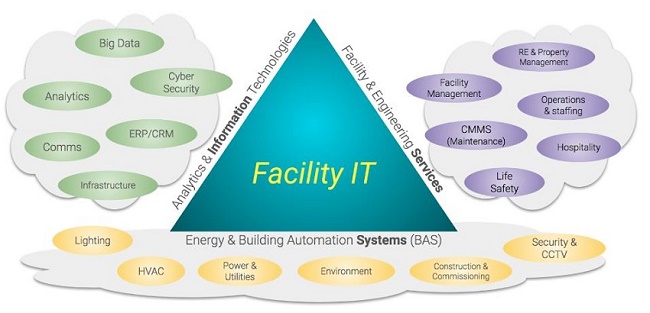 EMAIL
INTERVIEW
– John Petze and Anto Budiardjo
EMAIL
INTERVIEW
– John Petze and Anto BudiardjoAnto Budiardjo, Fractional Entrepreneur
anto@budiardjo.com
|
November 2018 |
[an error occurred while processing this directive] |
| |
 EMAIL
INTERVIEW
– John Petze and Anto Budiardjo
EMAIL
INTERVIEW
– John Petze and Anto Budiardjo
Anto Budiardjo, Fractional Entrepreneur
anto@budiardjo.com
John Petze is a partner and Co-Founder at SkyFoundry, the developers of SkySpark™, an analytics platform for building, energy and equipment data. John has over 35 years of experience in building automation, energy management, and M2M, having served in senior level positions for manufacturers of hardware and software products including President & CEO of Tridium, VP Product Development for Andover Controls, and Global Director of Sales for Cisco Systems Smart and Connected Buildings group. He is also a member of the Association of Energy Engineers. At SkyFoundry he helps facility operators take advantage of advanced operational analytics to create truly intelligent and efficient buildings.
| Articles |
| Interviews |
| Releases |
| New Products |
| Reviews |
| [an error occurred while processing this directive] |
| Editorial |
| Events |
| Sponsors |
| Site Search |
| Newsletters |
| [an error occurred while processing this directive] |
| Archives |
| Past Issues |
| Home |
| Editors |
| eDucation |
| [an error occurred while processing this directive] |
| Training |
| Links |
| Software |
| Subscribe |
| [an error occurred while processing this directive] |
Facility IT is a discipline lying at the
intersection of Building Automation Systems (BAS), Facility Management
(FM), and Information Technology (IT). It’s best described as the use
of information technology to ensure that the building systems are
performing and delivering on the needs of the organization who pay for
and rely on the facility. Facility IT emerged from the New Deal for Buildings
initiative.
Anto
Budiardjo: What is your take on the Facility IT movement?
John Petze: The concept of facility IT correctly captures the reality that intelligent buildings require a combination of both OT technology and skill sets and IT technology and skills in equal portions. The current gap in service providers (systems integrators, engineering firms and the like) that can provide both is perhaps the major issue holding back the adoption of more intelligent, efficient, sustainable and comfortable buildings.

Anto
Budiardjo: Would you consider yourself working in Facility
IT?
John Petze: Yes, as
a software company providing data analytics software for the built
environment, we are squarely in the eye of this storm. It is when
organizations try to collect and utilize the data from their equipment
systems that they encounter (often for the first time) the OT and IT
issues related with utilizing operational data. Much of our development
work is focused on helping to address and streamline the functions
involved with connecting to, normalizing and managing device and
equipment system data to help lower the cost and time involved in
implementing data-oriented solutions.
Anto
Budiardjo: How can Facility IT can improve the BAS
industry?
John Petze: I think it
is a fair critique to say that the majority of the BAS industry has not
fully embraced the IT aspects of intelligent buildings. For too long
networks were provided by others and perhaps most importantly many of
the BAS products and software available is still a generation behind in
IT and software technology. This causes a range of challenges. Even
today new systems are installed that do not make it easy to integrate
with other systems or to access data for value-added applications such
as analytics, KPI tracking, benchmarking and reporting. Owners deserve
to be able to easily use the data generated by the systems they
purchase and in too many cases that is not the case.
[an error occurred while processing this directive]Anto
Budiardjo: How does Facility IT relate to those involved
in the Haystack Project?
John Petze: The reason
for launching the Project-Haystack initiative was to address a
fundamental issue related to equipment system data, that being a
standard approach to defining and using metadata that describes the
meaning of equipment and device data. The need for the Haystack
initiative demonstrates the Facility IT gap. The IT industry long ago
agreed on a standard way of “marking up” information so that software
applications could interpret that information automatically and without
human involvement. The example I am referring to is HTML - a standard
method of marking up text and documents so that any application (think
a browser) could interpret and present the information. I can point my
browser to your website and read what you have published because you
follow the worldwide HTML standard. What surprises many IT people when
they come over to the OT side of the house is that a similar standard
for “marking up” equipment data did not exist. Haystack is the most
widely adopted standard to address that need. It is by definition a
facility IT technology.
Anto
Budiardjo: What would you say to readers keen on
understanding Facility IT?
John Petze: First I
would say that it takes a learning effort. Virtually no one has command
of all of the technologies, requirements, and issues involved in
Facility IT and OT systems. That leads to the next point, which is that
no one provider can provide it “all”. Intelligent building projects
need to involve more elements and service providers. One of the trends
supporting this is the concept of a Master Systems Integrator. By this,
we mean a service provider that possesses domain expertise in the range
of IT systems and networking, as well as building automation and
controls, equipment systems, application software analytics, and
support services. While an MSI may not be the final “expert” in every
system or technology, they are expert in understanding the issues and
managing the process and various other system integrators responsible
for different vertical technology domains.
[an error occurred while processing this directive]
[Click Banner To Learn More]
[Home Page] [The Automator] [About] [Subscribe ] [Contact Us]